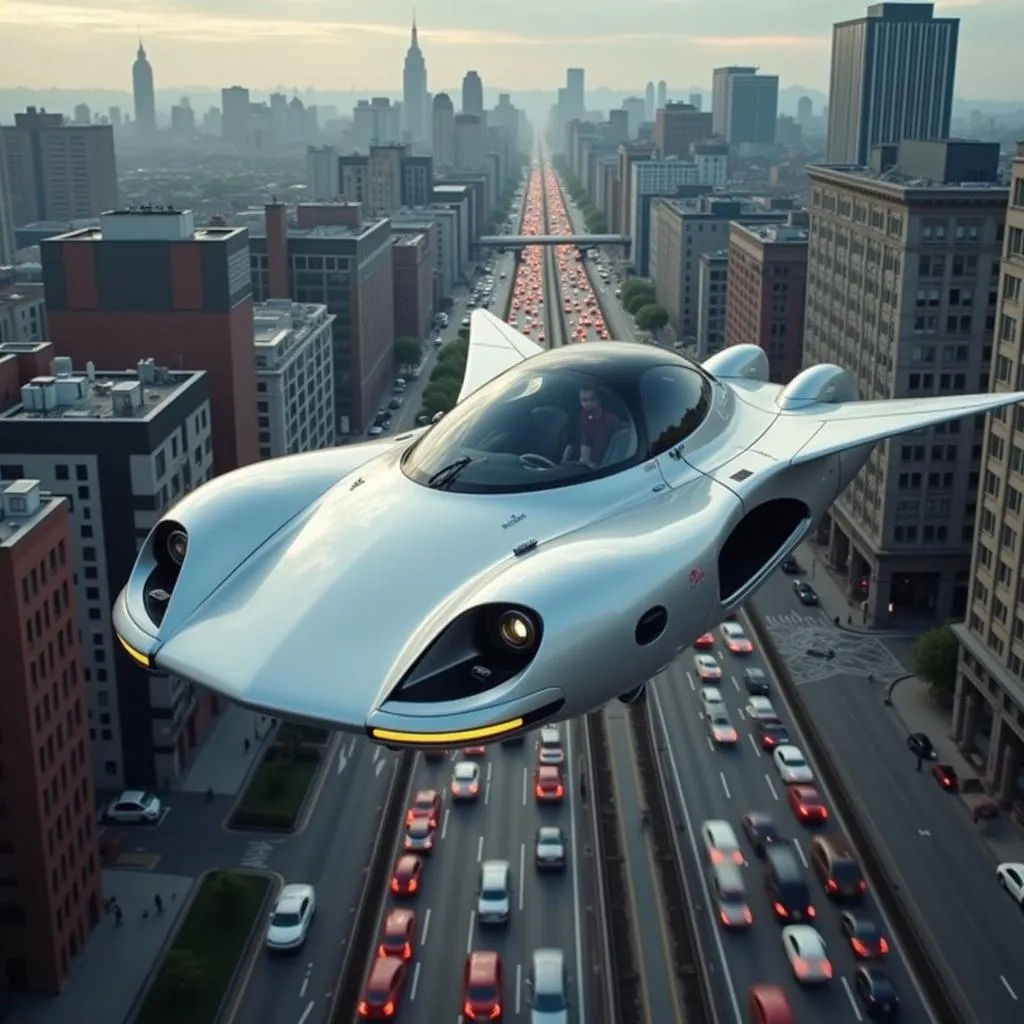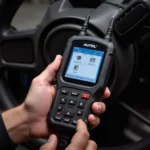The idea of flying cars has captivated our imaginations for decades, fueled by countless science fiction novels and films. But what was once a futuristic fantasy is quickly becoming a tangible reality. Today, companies around the world are developing and testing prototypes of these innovative vehicles, promising a future where we soar above traffic jams and congested roads.
The Allure of the Open Sky: Why Flying Cars?
The appeal of flying cars is multifold. They offer a solution to several pressing issues facing modern cities and transportation systems:
- Traffic Congestion: Imagine bypassing rush hour entirely, gliding above gridlocked streets. Flying cars could drastically reduce travel times and increase efficiency, especially in densely populated urban areas.
- Infrastructure Strain: By utilizing airspace, flying cars could alleviate the burden on existing road infrastructure, reducing the need for costly road expansions and maintenance.
- Environmental Concerns: Many flying car prototypes are designed with electric or hybrid engines, potentially reducing carbon emissions and promoting a greener mode of transportation.
- Accessibility and Connectivity: Flying cars could provide access to remote areas or regions with limited road infrastructure, opening up new possibilities for travel and exploration.
Technological Advancements: Turning Dreams into Reality
Developing a safe, reliable, and commercially viable flying car is a complex endeavor, requiring breakthroughs in various technological fields:
- Vertical Takeoff and Landing (VTOL): Unlike traditional airplanes, flying cars need to take off and land vertically, enabling them to operate in urban environments with limited space. This requires advanced propulsion systems and flight control software.
- Battery Technology: For electric flying cars to become practical, significant advancements in battery technology are essential. Longer ranges, faster charging times, and increased energy density are crucial factors.
- Autonomous Flight: While initial models may require pilot licenses, the long-term vision for flying cars often involves autonomous flight capabilities. This requires sophisticated sensors, artificial intelligence, and robust safety protocols.
- Air Traffic Management: Integrating flying cars into existing airspace will necessitate the development of new air traffic management systems. These systems must ensure the safe and efficient flow of both traditional aircraft and these new aerial vehicles.
Challenges and Considerations for a Flying Future
Despite the excitement surrounding flying cars, several challenges and considerations need to be addressed before they become a mainstream mode of transportation:
- Safety Regulations: Stringent safety regulations and certification processes will be crucial to ensure the safety of both passengers and the public.
- Cost and Accessibility: Initially, flying cars are likely to be expensive, limiting their accessibility to a select few. Making them affordable to the general public will be key to widespread adoption.
- Noise Pollution: The sound generated by flying cars, especially during takeoff and landing, could contribute to noise pollution in urban areas. Engineers are exploring ways to mitigate this issue through innovative engine designs and noise reduction technologies.
- Public Acceptance: The widespread adoption of flying cars will require public acceptance and trust in this new technology. Addressing concerns about safety, noise, and potential disruptions to urban life is crucial.
Flying Cars: A Glimpse into the Future
While challenges remain, the development of flying cars is progressing rapidly. Several companies are already accepting pre-orders, with some models expected to hit the market in the next few years.
Imagine a future where you can hail a flying taxi using your smartphone, soaring above traffic to reach your destination quickly and efficiently. Or picture yourself embarking on a weekend getaway, your flying car effortlessly navigating through scenic landscapes. The possibilities are endless.
As technology continues to evolve and regulations adapt, flying cars have the potential to revolutionize transportation, offering a safer, more efficient, and environmentally friendly way to travel. The dream of taking to the skies in our own personal vehicles may soon be within our reach, transforming the way we live, work, and explore our world.
Flying Cars FAQs:
1. When will flying cars be available for purchase?
While specific timelines vary by company and model, some flying car manufacturers anticipate deliveries as early as 2025, with wider availability expected in the following decade.
2. Will I need a pilot’s license to fly a flying car?
Initial models may require a pilot’s license, but many companies are developing autonomous flying cars that wouldn’t necessitate traditional pilot training.
3. How much will flying cars cost?
Early models are expected to have a high price tag, likely comparable to luxury sports cars. However, as production scales up and technology advances, costs are anticipated to decrease over time.
4. How safe are flying cars?
Safety is a top priority for flying car manufacturers and regulatory agencies. These vehicles are being designed with multiple redundancies and safety features to mitigate risks.
5. What about air traffic control for flying cars?
New air traffic management systems are being developed to integrate flying cars safely and efficiently into existing airspace.
6. Are flying cars environmentally friendly?
Many flying cars are being designed as electric or hybrid vehicles, potentially reducing carbon emissions compared to traditional cars. However, their overall environmental impact will depend on factors like energy sources and battery production.
7. Where can I find more information about flying cars for sale?
For insights into the evolving market of flying vehicles, you can explore resources like: flying cars for sale.
Explore Further:
Interested in learning more about the future of transportation? Discover more about the cutting-edge technologies shaping our world:
Need Assistance? Contact Us!
Our team at DiagXcar is here to assist you with any inquiries or support you may need. Feel free to reach out to us through the following channels:
- WhatsApp: +1(641)206-8880
- Email: cardiagtechworkshop@gmail.com
- Address: 276 Reock St, City of Orange, NJ 07050, United States
We have a dedicated customer support team available 24/7 to address your needs.


